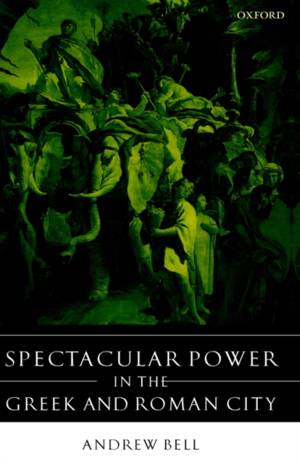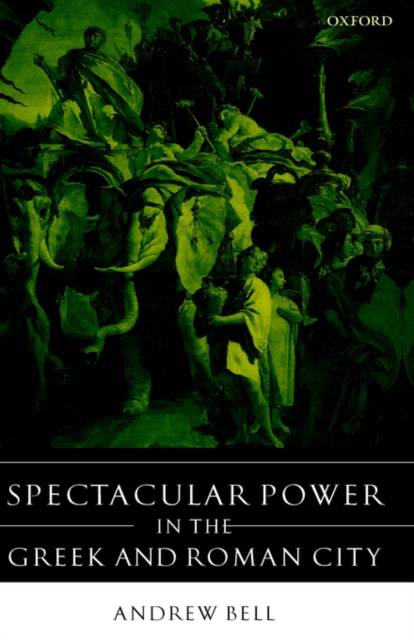
- Afhalen na 1 uur in een winkel met voorraad
- Gratis thuislevering in België vanaf € 30
- Ruim aanbod met 7 miljoen producten
- Afhalen na 1 uur in een winkel met voorraad
- Gratis thuislevering in België vanaf € 30
- Ruim aanbod met 7 miljoen producten
Zoeken
€ 370,95
+ 741 punten
Uitvoering
Omschrijving
Andrew Bell's analysis of the power of prestige in civic communities of the ancient world demonstrates the importance of crowds' aesthetic and emotional judgement upon leaders and their ambitious claims for immediate and lasting significance; and also finds consideration of this dynamic still to be valuable for modern citizens. An initial discussion of the fall of Ceausescu in 1989 prompts theoretical considerations about the inseparability of authority and its manifestation; and scrutiny of Julius Caesar's gestures towards self-definition introduces the complexity of ancient political relations. The simultaneous presence of both popular affection for wondrous and kingly individuals, and also egalitarian suspicion of it, is detected in classical Athens, where an Alcibiades needed to maneuver craftily to achieve obvious and ritual pre-eminence in associating himself with age-old and Homeric models of distinction. Accordingly, the arrival of Hellenistic kingliness, such as that of Demetrios Poliorcetes, upon the political stage was neither wholly innovative nor unattractive. Yet such kings quite clearly articulated a new and grandiose majesty, as can be seen in parades in Egypt and Syria. With the growth of Roman imperialism, these stylings of personal power needed to be adapted to new realities and models, just as Romans of the later Republic increasingly found much to admire and emulate in others' spectacles. Thus the book comes back to the end of the Republic and to Cicero's struggles to maintain traditional, republican dignities in civic ceremony while a new Roman kingliness, thoroughly attentive to spectacular politics, was dawning.
Specificaties
Betrokkenen
- Auteur(s):
- Uitgeverij:
Inhoud
- Aantal bladzijden:
- 304
- Taal:
- Engels
Eigenschappen
- Productcode (EAN):
- 9780199242344
- Verschijningsdatum:
- 23/11/2004
- Uitvoering:
- Hardcover
- Formaat:
- Genaaid
- Afmetingen:
- 140 mm x 216 mm
- Gewicht:
- 526 g

Alleen bij Standaard Boekhandel
+ 741 punten op je klantenkaart van Standaard Boekhandel
Beoordelingen
We publiceren alleen reviews die voldoen aan de voorwaarden voor reviews. Bekijk onze voorwaarden voor reviews.







